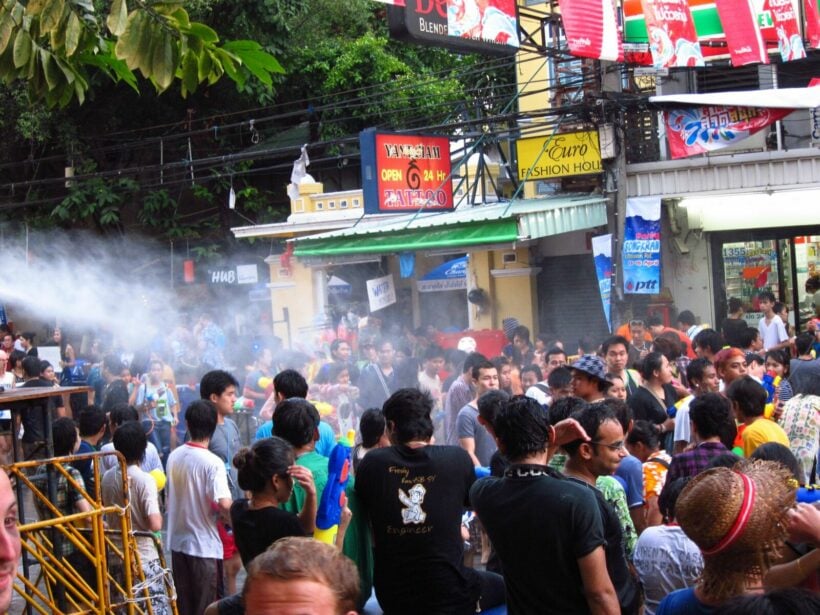Thailand’s tourism operators despair at another lost Songkran

Following the CCSA’s decision to ban water throwing during this year’s Songkran celebrations, tourism operators have been left despairing – for the third year in a row. Sanga Ruangwattanakul, president of the Khao San Road Business Association, questions how the government can ban water splashing events on one hand, while, on the other hand, say Covid-19 will be endemic by July 1.
Sanga’s association plans to submit a petition to the CCSA this week, asking officials to allow water splashing events in public areas of popular tourism destinations. He says doing so would show the world that Thailand is ready to kickstart post-pandemic tourism, adding that even if such events are governed by Covid restrictions and limits on numbers, this would still be better than nothing.
“The government has mandated regulations but never given us a solution. To comply with CCSA rules, restaurants until now still have to limit indoor and outdoor seat capacity to 50% and 75%, respectively. Earning under such restrictions is now worsened by soaring operational costs of around 20%, led by oil prices and electricity.”
Meanwhile, the Bangkok Post reports that operators are holding out little hope for the domestic tourism market either. La-Iad Bungsrithong, from the northern chapter of the Thai Hotels Association, says Chiang Mai has to endure a quiet Songkran for the third year in a row. Celebrations of the Thai New Year holiday usually run for around a week in the northern province.
“Looking at it optimistically, the occupancy rate during the upcoming holiday might escalate to 40-50% from the current level of under 20%. However, with a number of living-cost concerns for local travellers, such as soaring oil prices, the occupancy could also be no higher than 30%.”
La-Iad goes on to say that even though around 50% of Chiang Mai’s hotels have re-opened, up from 30% last year, most are still not breaking even. And the government’s tourism subsidy scheme is no longer helping.
“There’s no more magic from the domestic We Travel Together campaign this time, as the higher cost of living is quite a heavy burden for Thai travellers. Speaking to guests, many of them want to save money to prepare for uncertainties such as looming inflation.”
SOURCE: Bangkok Post
Latest Thailand News
Follow The Thaiger on Google News:


























